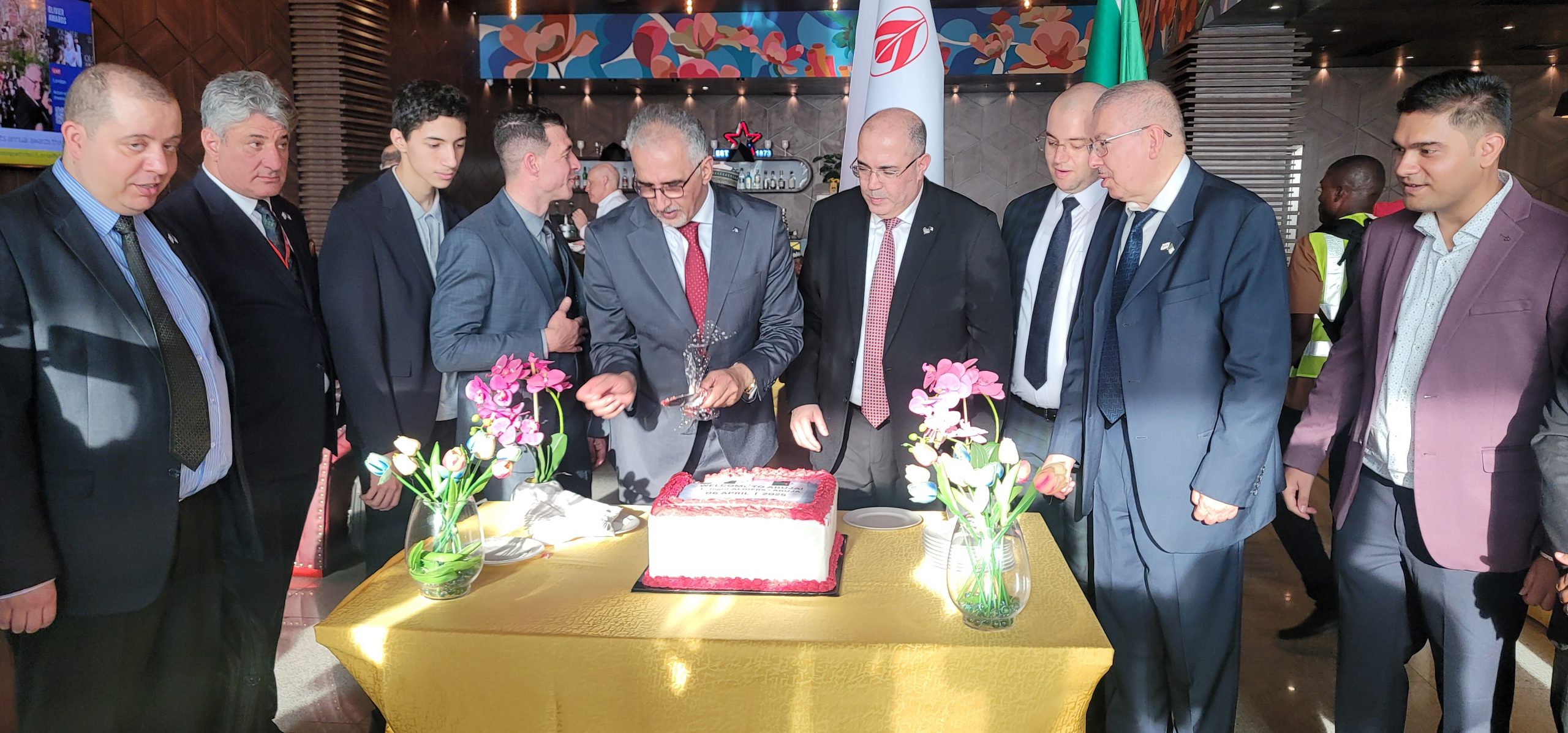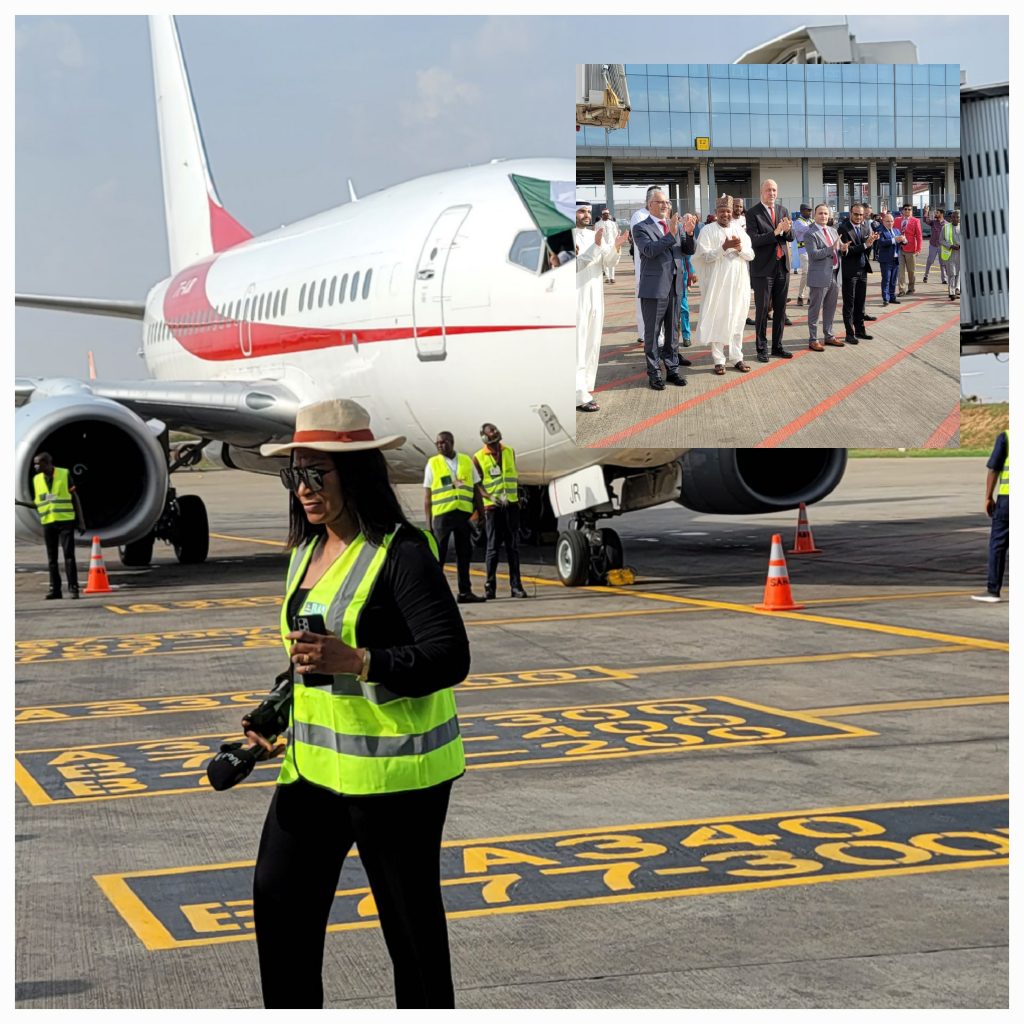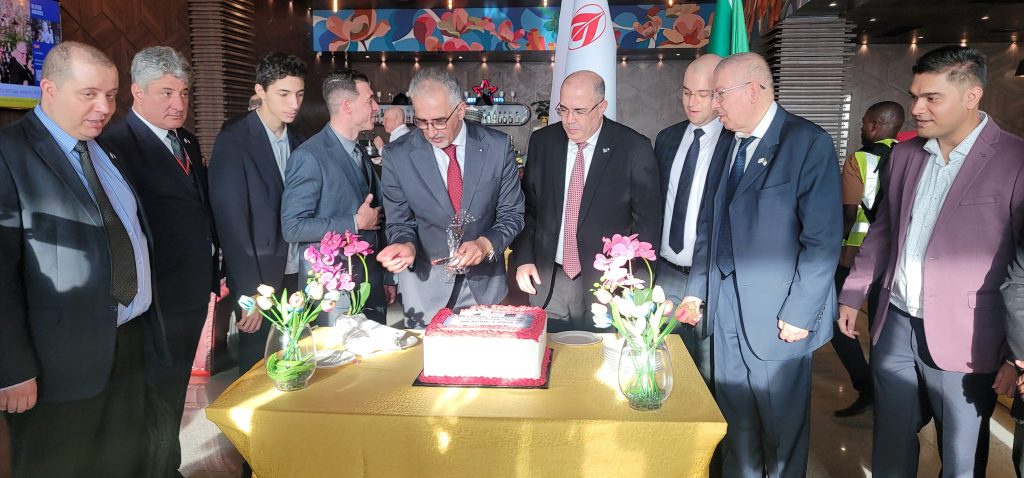Foreign news
Air Algérie Begins Direct Flights to Nigeria, Strengthening Bilateral Ties

Joel Ajayi
Air Algérie has officially launched its first direct flight from Algiers to Abuja, marking a significant milestone in Algeria–Nigeria relations.
The inaugural flight departed from Algiers International Airport and landed at Nnamdi Azikiwe International Airport in Abuja, where it was warmly received by Algerian and Nigerian government officials in a festive ceremony.

This new route is part of Air Algérie’s broader efforts to expand its international network and deepen strategic cooperation across Africa. The airline will now operate two weekly flights between Algiers and Abuja, a move expected to facilitate greater business, diplomatic, and cultural exchanges between the two nations.
Air Algérie is the national flag carrier of Algeria, established in 1962. It operates as a public economic joint-stock company, with a mission to connect Algeria to Africa, Europe, and selected destinations in Asia and the Americas.

Headquartered in Algiers, the airline provides scheduled international services to more than 47 destinations across 30 countries, including in Europe, North America, Asia, and the Middle East.
Domestically, Air Algérie serves 33 airports across Algeria, ensuring connectivity throughout the country.
The airline is equipped with significant human and material resources, boasting a fleet of 55 aircraft, supported by 539 pilots, 1,227 cabin crew, 607 maintenance personnel, and 42 operational units.
Air Algérie also maintains a vast commercial network. Its services are distributed through a comprehensive sales system that includes:90 branches within Algeria, 32 branches abroad, 10 general sales agents, 90 airport service points, 6,400 IATA-accredited travel agents through GDS.
Air Algérie remains committed to strengthening regional and international connectivity.
Speaking at the launch ceremony, the Algerian Ambassador to Nigeria, His Excellency Mezoued Hosineb, described the route as a vital step in further cementing the strong ties between Algeria and Nigeria.
“This historic route is more than just a flight path; it is a symbol of our shared values, mutual respect, and the unwavering commitment of our leaders to build a model partnership for Africa.”
“With this direct flight, Algiers is now just under five hours from Abuja a testament to the vision and cooperation of both our nations.”
He highlighted that the bilateral relationship, nurtured over more than two decades, has already led to major initiatives such as the Trans-Saharan pipeline and other infrastructure projects. Both Algeria and Nigeria, he noted, are open-market economies committed to reform and regional integration.
The Ambassador expressed deep gratitude to the Nigerian Civil Aviation Authority, Federal Airports Authority of Nigeria, the Ministry of Aviation and Aerospace Development, and other key stakeholders for their support in making the route a reality.
He also acknowledged the efforts of Air Algérie’s representatives in Nigeria.
Representing the Minister of Aviation and Aerospace Development, Dr. Ibrahim Abubakar Kana, Permanent Secretary of the Ministry, emphasized the economic benefits of the new route.
“This direct flight opens a myriad of opportunities for trade and investment between Nigeria and Algeria. Our business communities now have a faster and more efficient way to connect.”
“Beyond business, this connection will foster deeper collaboration in tourism, culture, education, and research.”
Dr. Kana also praised Air Algérie’s commitment to making the long-awaited dream a reality and urged the airline to maintain high standards of passenger care.
“We expect top-notch service and zero tolerance for the mistreatment of Nigerian passengers. The Ministry stands ready to support Air Algérie in its operations,” he added.
Dr. Kana encouraged Air Algérie to expand beyond Abuja and include other key Nigerian cities in its flight schedule.
“We hope to soon see your aircraft land in Lagos and Kano. Let this be the beginning of an even stronger aviation and economic bridge between our countries.”
As Air Algérie touches down on Nigerian soil, it not only marks a logistical achievement but also opens a new chapter in Africa’s quest for greater intra-continental connectivity.
Foreign news
Pakistan Moves to Deepen Diplomatic, Economic Relations With Nigeria

The Government of the Islamic Republic of Pakistan has called for deeper diplomatic and economic ties with the Nigerian government to foster development for both countries.
Mr Rana Ihsaan, the Coordinator to the Prime Minister of Pakistan made the call in an interview with the News Agency of Nigeria (NAN) during his working vist to Nigeria on Wednesday in Abuja.
NAN reports that the visiting Coordinator held a closed-door meeting with Yusuf Tuggar, the Minister of Foreign Affairs.
After the meeting, he said that both both sides had agreed on deepening relations in the areas of trade and commerce, among others.
Ihsaan said that both countries must see the need to accelerate efforts towards a Bilateral Trade Agreement (BTA).
He said that Pakistan had already submitted a draft BTA and was awaiting Nigeria’s response.
According to him, discussions centered on easing visa processes, expanding educational exchanges, and strengthening Cooperation in sectors such as Minerals, Youth training, and Defence were highlighted.
Ihsaan said that Pakistan had already implemented visa-on-arrival for Nigerians at no cost, and urged Nigeria to reciprocate to enhance people-to-people ties.
He stressed the importance of high-level engagements between both nations, describing Nigeria and Pakistan as very similar countries with large populations, youthful demographics, and vast economic potentials.
“Deeper collaboration will unlock opportunities in trade, education and investment, while further solidifying long-standing diplomatic relations,” he said.
He said that aside from visiting the foriegn Minister and other top government officials in Nigeria, he was also in the country to attend the on-going West Africa Beauty Exhibition holding in Lagos.
He described the exhibition as one of the continent’s largest cosmetic fairs, adding that he led a delegation of 19 Pakistani business people exploring Nigeria’s estimated 10 million dollar beauty and cosmetics market.
Ihsaan said that Nigeria was a gateway to Africa, adding that Pakistani products, like cosmetics, Textiles, Pharmaceuticals, Food items and Sports goods were already gaining traction in the country.
He encouraged Pakistani exhibitors to establish offices, Warehouses and logistics partnerships to strengthen their foothold in the Nigerian market.
Ihsaan further addressed concerns from Nigerian businesses on the ease of doing business in Pakistan.
He said that the Trade Development Authority of Pakistan had been supporting Nigerian participants at major exhibitions to achieve the ease of doing business.
“The Special Investment Facilitation Council (SIFC) serves as a one-stop platform for Nigerians interested in investing in Pakistan,” he said
Culled from NAN
-

 Featured6 years ago
Featured6 years agoLampard Names New Chelsea Manager
-

 Featured6 years ago
Featured6 years agoFG To Extends Lockdown In FCT, Lagos Ogun states For 7days
-

 Featured6 years ago
Featured6 years agoChildren Custody: Court Adjourns Mike Ezuruonye, Wife’s Case To April 7
-

 Featured6 years ago
Featured6 years agoNYSC Dismisses Report Of DG’s Plan To Islamize Benue Orientation Camp
-

 Featured4 years ago
Featured4 years agoTransfer Saga: How Mikel Obi Refused to compensate me After I Linked Him Worth $4m Deal In Kuwait SC – Okafor
-
Sports3 years ago
TINUBU LAMBAST DELE MOMODU
-

 News11 months ago
News11 months agoZulu to Super Eagles B team, President Tinubu is happy with you
-
Featured6 years ago
Board urges FG to establish one-stop rehabilitation centres in 6 geopolitical zones
